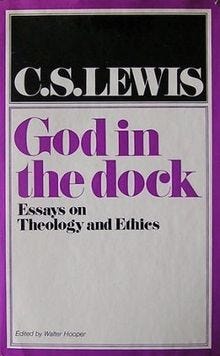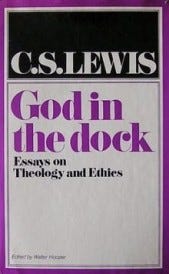C. S. Lewis: The Unraveling of Materialism


Click to buy on Amazon
by Marc Hays
Here’s a portion of the first paragraph of the first essay in Walter Hooper’s collection of C. S. Lewis essays, God in the Dock. This quote is a prime example of Lewisian logic–better known as common sense.
“Mechanism, like all materialist systems, breaks down at the problem of knowledge. If thought is the undesigned and irrelevant product of cerebral motions, what reason have we to trust it? As for emergent evolution, if anyone insists on using the word God to mean ‘whatever the universe happens to be going to do next’, of course we cannot prevent him. But nobody would in fact so use it unless he had a secret belief that what was coming next will be an improvement. Such a belief, besides being unwarranted, presents peculiar difficulties to an emergent evolutionist. If things can improve, this means that there must be some absolute standard of good above and outside the cosmic process to which that process can approximate. There is no sense in talking of becoming better if better means simply ‘what we are becoming’—it is like congratulating yourself on reaching your destination as ‘the place you have reached’. Mellontolatry, or the worship of the future, is a fuddled religion.”
–C. S. Lewis, “Evil and God”, God in the Dock<> поисковое продвижение магазина
The post C. S. Lewis: The Unraveling of Materialism appeared first on Kuyperian Commentary.

